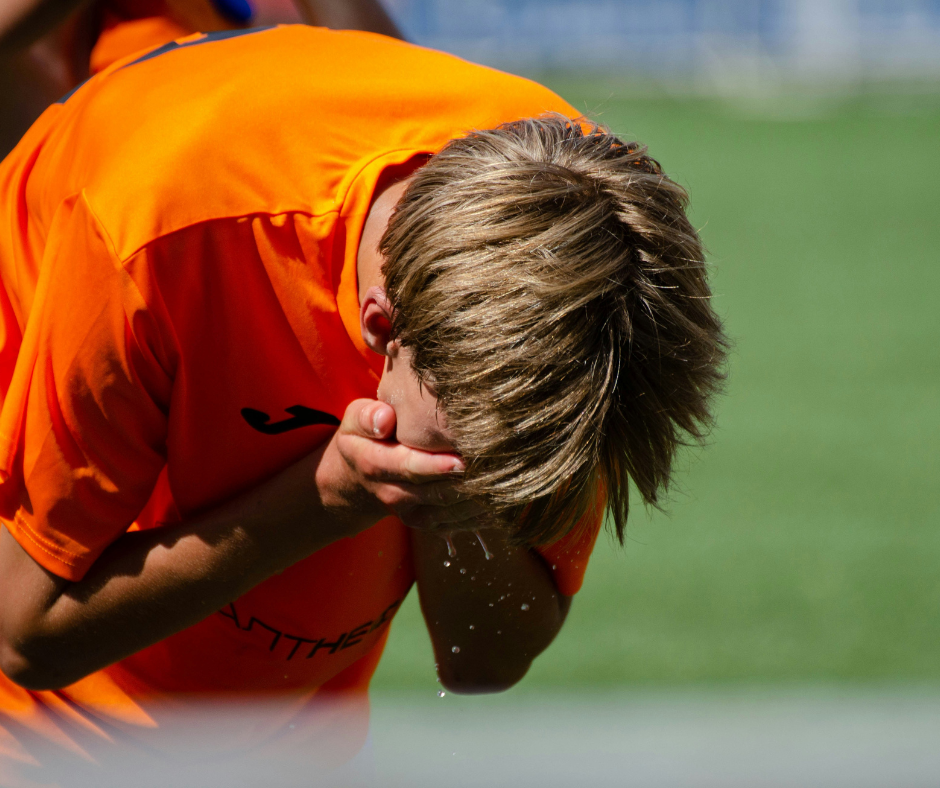
If All Else Fails: How Brain-Based Therapy Can Help Athletes Overcome Mental Blocks, Injuries, and Slumps
If All Else Fails: How Brain-Based Therapy Can Help Athletes Overcome Mental Blocks, Injuries, and Slumps.Every athlete faces challenges—pressure to perform, fear of failure, and the heartbreak of injuries. For some, these hurdles are temporary setbacks. But for others, they become deeply ingrained obstacles, leading to mental blocks, performance slumps, or even career-ending struggles.
What if traditional sports psychology, motivational coaching, or even standard therapy isn’t enough? That’s where brain-based trauma therapy, including EMDR (Eye Movement Desensitization and Reprocessing) and Brainspotting, comes in. These innovative, evidence-based techniques are changing the game by helping athletes retrain their brains, clear mental roadblocks, and regain confidence in their performance.
How To Parent Through Youth Sports with one Powerful Phrase, “I Love To Watch You Play”.
The Hidden Trauma in Sports
When people hear the word “trauma,” they often think of war veterans or survivors of serious accidents. But trauma isn’t just about life-threatening events—it can also stem from deeply distressing experiences, even those that might seem small to an outsider.
In the world of sports, trauma can come in many forms:
- A devastating loss in a championship game
- Harsh criticism from a coach or public embarrassment
- A serious injury that changes the way an athlete trusts their body
Two athletes can go through the same event—let’s say, missing a game-winning shot. One might shrug it off and say, “I’ll get the next one.” The other might internalize it as proof that they’re not good enough. Over time, if these negative beliefs get stuck in the brain, they can trigger anxiety, self-doubt, and even physical hesitation when performing.
This is where brain-based trauma therapy makes a difference. Unlike traditional “talk therapy,” which works through the frontal lobe (the logical, thinking part of the brain), EMDR and Brainspotting access deeper brain regions—the areas where traumatic memories and negative beliefs are stored.
What Are the Yips (And Why Do They Happen)?
One of the most dramatic examples of mental blocks in sports is the yips—a sudden, unexplained inability to perform a skill an athlete has already mastered. This happens because the brain, stuck in a stress response, shuts down muscle coordination as a way to protect the athlete from perceived danger.
The yips aren’t just frustrating; they can be devastating—costing scholarships, endorsements, or even entire careers. But brain-based trauma therapy can help rewire the brain’s response and allow athletes to perform at their highest level again.
The Science Behind Brain-Based Trauma Therapy
So how do EMDR and Brainspotting work?
🔹 Brainspotting uses eye position to access stuck emotional and physical trauma in the brain. It allows an athlete to process and release negative experiences without needing to talk about them in detail.
🔹 EMDR uses guided eye movements to help the brain reprocess painful memories, reducing the emotional charge attached to them. It’s an established, evidence-based treatment for PTSD and is now being used to help athletes break through mental barriers.
Both methods can help with:
✅ Overcoming fear after an injury
✅ Regaining confidence after a performance slump
✅ Eliminating the yips and other mental blocks
✅ Enhancing focus and getting “in the zone” more easily
Beyond Recovery: Unlocking Peak Performance
Even athletes who aren’t struggling with trauma or performance blocks can benefit from brain-based therapy. These techniques can improve focus, increase confidence, and help athletes reach a state of flow, where their skills and instincts take over effortlessly.
If All Else Fails… There’s Still Hope
For athletes feeling stuck, frustrated, or hopeless—there are solutions. Mental roadblocks don’t have to define an athlete’s career. Brain-based trauma therapy is an underutilized but powerful tool that can help athletes retrain their brains, reset their nervous systems, and rediscover the joy of competing.
If you or someone you know is struggling, finding the right mental performance specialist can make all the difference. Because sometimes, the key to unlocking your full potential isn’t just in the body—it’s in the brain.
 Jennie Carlestav, LMFT, is a Licensed Clinical Psychotherapist and a specialist in sports performance and trauma therapy. With certifications in Brainspotting, EMDR, and HeartMath, she has helped athletes—from youth players to Olympians—overcome mental blocks, recover from injuries, and elevate their performance.
Jennie Carlestav, LMFT, is a Licensed Clinical Psychotherapist and a specialist in sports performance and trauma therapy. With certifications in Brainspotting, EMDR, and HeartMath, she has helped athletes—from youth players to Olympians—overcome mental blocks, recover from injuries, and elevate their performance.
To learn more about how brain-based therapy can help athletes, visit www.CarlestavCC.com.











